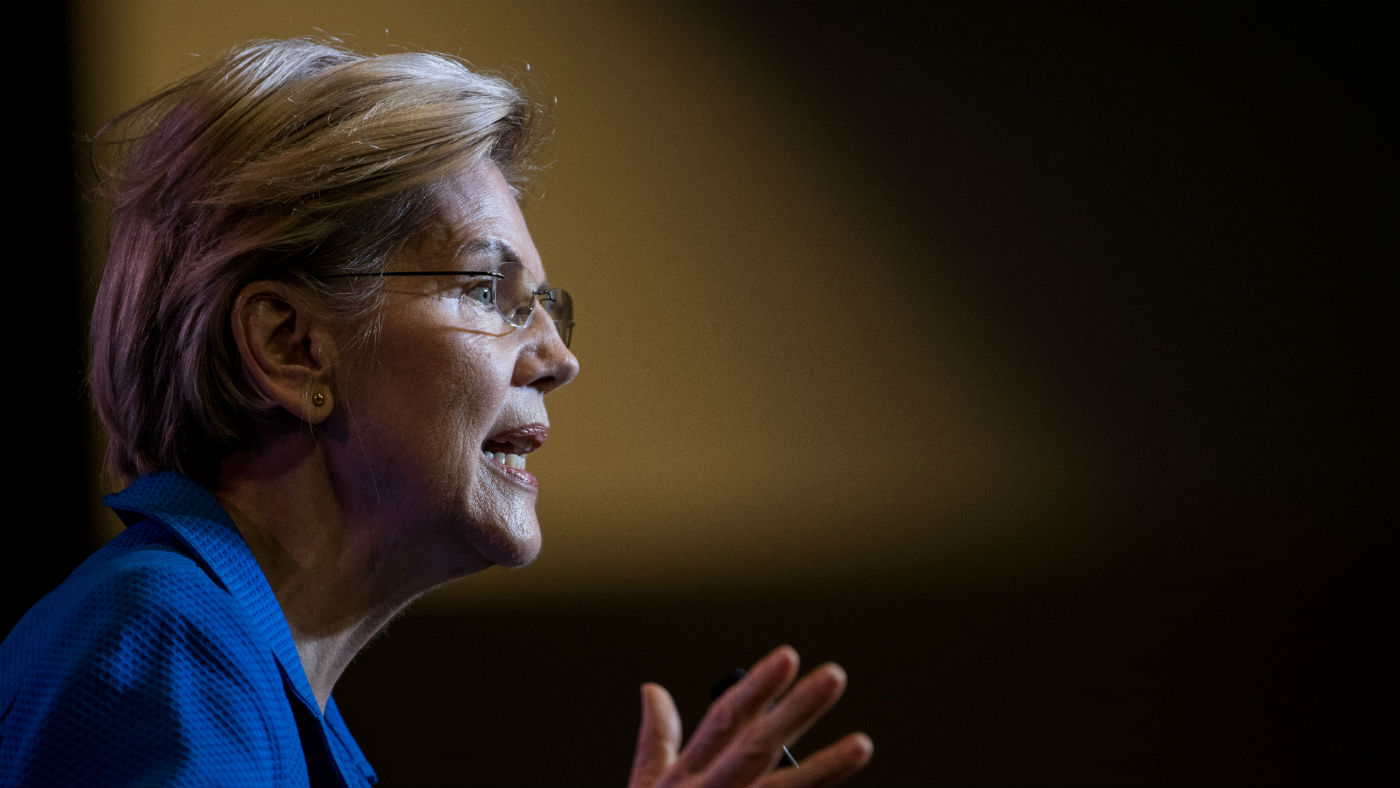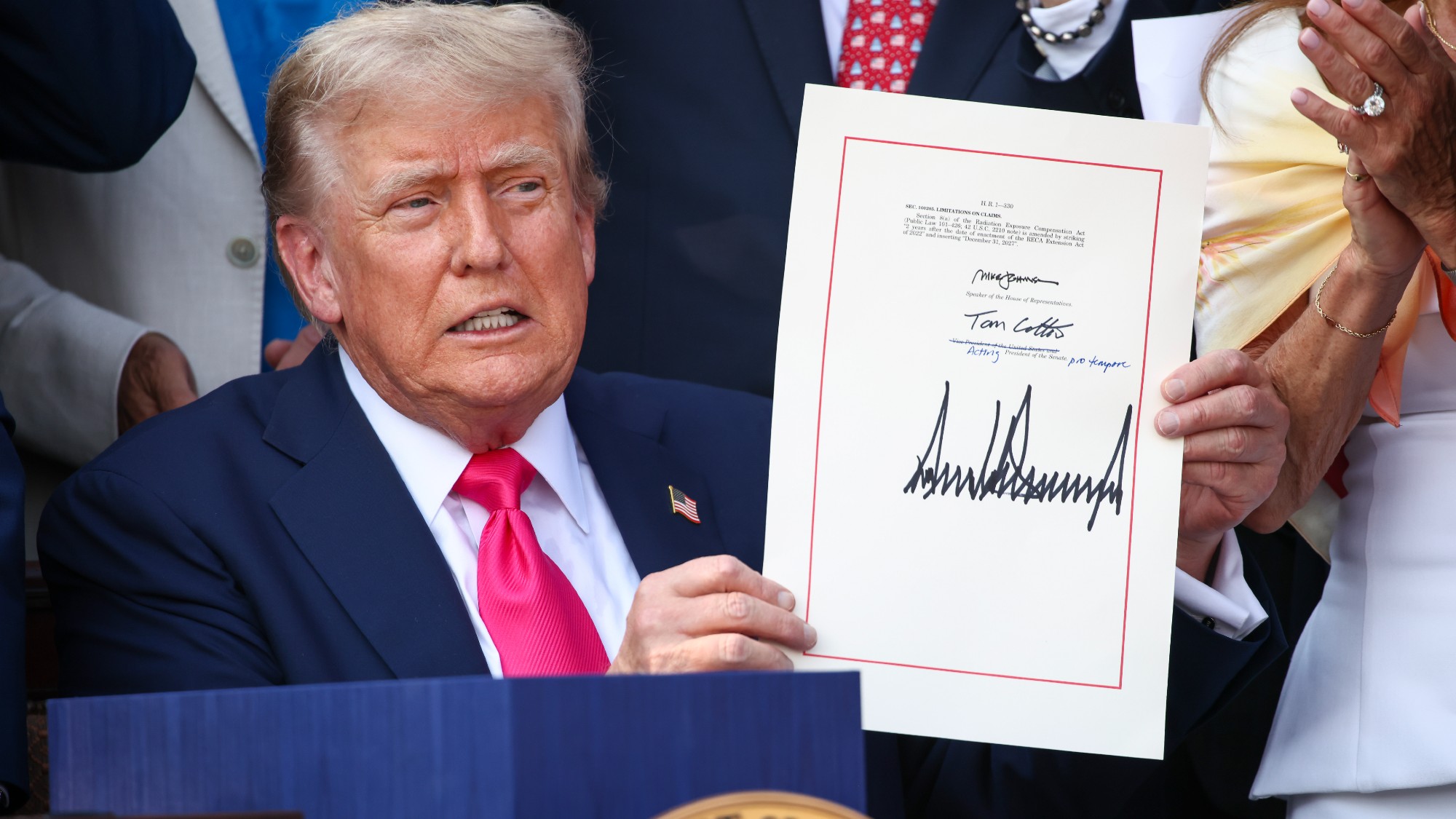How would a wealth tax on the super-rich work?
US billionaires urge presidential candidates to back levy to improve inequality and tackle climate change

A free daily email with the biggest news stories of the day – and the best features from TheWeek.com
You are now subscribed
Your newsletter sign-up was successful
Some of America’s richest people have urged US presidential candidates to back a wealth tax on the super-rich to improve inequality and tackle climate change.
“A wealth tax could help address the climate crisis, improve the economy, improve health outcomes, fairly create opportunity, and strengthen our democratic freedoms. Instituting a wealth tax is in the interest of our republic” an open letter signed by 18 signatories said.
Claiming “America has a moral, ethical and economic responsibility to tax our wealth more,” billionaire financier George Soros, Facebook co-founder Chris Hughes, a descendant of Walt Disney and the owners of the Hyatt hotel chain among others pointed out that fellow billionaire Warren Buffett, the third richest man in America, is taxed at a lower rate than his secretary.
The Week
Escape your echo chamber. Get the facts behind the news, plus analysis from multiple perspectives.

Sign up for The Week's Free Newsletters
From our morning news briefing to a weekly Good News Newsletter, get the best of The Week delivered directly to your inbox.
From our morning news briefing to a weekly Good News Newsletter, get the best of The Week delivered directly to your inbox.
While insisting they were non-partisan and not endorsing any particular candidate, the letter praised a proposal by Democratic presidential hopeful Senator Elizabeth Warren that would lift taxes on those with more than $50m, and an additional 1% on assets over $1 billion. This measure would affect the 75,000 wealthiest families and is estimated to raise $2.75tn over 10 years.
Warren is just one of a number of presidential candidates pushing for higher-taxes on the super-wealthy. The New York Times says “a desire to curb the rising concentration of wealth has long been part of the Democrats’ core message, but a Republican tax bill in 2017 that delivered the biggest benefits to Americans with the highest incomes reinvigorated the debate”.
Analysis of a recent Federal Reserve report found that over the last three decades, the wealthiest 1% of Americans saw their net worth grow by $21 trillion, while the wealth of the bottom 50% fell by $900 billion.
Of about 40 countries, the US is the sixth highest in terms of wealth concentration, according to data from the Organisation for Economic Co-operation and Development (OECD).
A free daily email with the biggest news stories of the day – and the best features from TheWeek.com
Earlier this year Oxfam’s annual wealth check revealed the world’s richest 26 people now own as much as the poorest 50%. The Guardian says a global wealth tax of 0.5% on the world’s richest 1% would raise an estimated $418bn (£325bn) a year, “enough to educate every child not in school and provide healthcare that would prevent 3 million deaths”.
Yet the Daily Telegraph says wealth taxes have been implemented in many European countries over the past few decades, “with varying degrees of success”.
According to the OECD, in 1990 12 countries had wealth taxes, but today this figure has dropped to four: Norway, Spain, Belgium and Switzerland. In a report, it said the reason many countries such as France and Germany repealed the levy, was because of administrative and efficiency concerns, and the fact that “the revenues collected from net wealth taxes have, with a few exceptions, been very low”.
“The wealth tax isn’t embraced by all Democrats because many believe it would be difficult to assess objectively the value of wealth like artwork and jewels” says TIME magazine. “There are also concerns that such a tax is unconstitutional because the federal government is prohibited from taxing property, only income”.
Nevertheless, a recent survey showed that roughly seven out of 10 Americans supported higher taxes on the wealthiest Americans.
In a sign of how widespread support for a wealth tax is, The Hill said the poll “showed support for the idea among people of all ages and races and from both political parties”.
In addition, a CNBC survey this month found that a majority of millionaires also support a tax on wealth above $50 million.
The BBC notes that incumbent US president Donald Trump “proposed a one-off wealth tax in 1999 to cut the national debt, but did not make it part of his election policy”.
-
 Health insurance: Premiums soar as ACA subsidies end
Health insurance: Premiums soar as ACA subsidies endFeature 1.4 million people have dropped coverage
-
 Anthropic: AI triggers the ‘SaaSpocalypse’
Anthropic: AI triggers the ‘SaaSpocalypse’Feature A grim reaper for software services?
-
 NIH director Bhattacharya tapped as acting CDC head
NIH director Bhattacharya tapped as acting CDC headSpeed Read Jay Bhattacharya, a critic of the CDC’s Covid-19 response, will now lead the Centers for Disease Control and Prevention
-
 What to know before filing your own taxes for the first time
What to know before filing your own taxes for the first timethe explainer Tackle this financial milestone with confidence
-
 3 required minimum distribution tax mistakes to avoid
3 required minimum distribution tax mistakes to avoidThe Explainer Missteps in making withdrawals from tax-advantaged retirement accounts can cost you big
-
 Is duty-free shopping worth it?
Is duty-free shopping worth it?the explainer How to determine whether you are actually getting a good deal
-
 What the 2025 Autumn Budget could mean for your wallet
What the 2025 Autumn Budget could mean for your walletThe Explainer Chancellor Rachel Reeves will reveal her latest plan to balance the nation’s finances in November
-
 What taxes do you pay on a home sale?
What taxes do you pay on a home sale?The Explainer Some people — though not many — will need to pay capital gains taxes upon selling their home
-
 Clean energy tax credits are going away. Here's how to get them before it's too late.
Clean energy tax credits are going away. Here's how to get them before it's too late.The Explainer Trump's recently passed megabill promises the early demise of clean energy tax credits
-
 How will the new tax deductions on auto loans work?
How will the new tax deductions on auto loans work?the explainer Trump's One Big Beautiful Bill Act introduced a tax deduction on auto loan interest — but eligibility for the tax break is limited
-
 8 ways Trump's bill will change your taxes
8 ways Trump's bill will change your taxesThe Explainer The 'big beautiful bill' was recently signed into law. Here's what it might mean for your wallet.